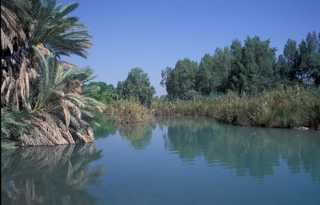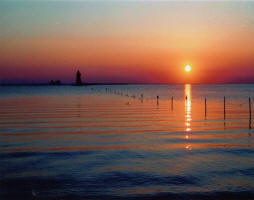 Mediterranean water shortages: Greedy tourists bring drought
Mediterranean water shortages: Greedy tourists bring drought
Drought-stricken Mediterranean resorts in Spain, Greece and Cyprus are doing little to make tourism in the region sustainable.
Countries bordering the Mediterranean are facing the prospect of water
crises in coming years. Fuelling these crises are the 200 million
sun-hungry travellers who visit the southern European region each year.
Their number is expected to triple to 600 million by 2025, according to
WWF.
The
campaign group warned about increased numbers of tourists contributing
to drought in the region as early as 2004. In a report about the threat
of expanding tourism on the Mediterranean’s water supplies, it observed
that most resort tourists use “almost four times the daily water
consumption of an average Spanish city dweller”.
Some resorts
are trying to shed the “water waster” image. Cavo Sidero, a 6,000-acre,
7,000-bed resort planned for the north-eastern side of Crete, is being
billed as the largest eco-friendly resort in the region, with
construction scheduled to start this year.
But the green
tourism trend is far from widespread in the Mediterranean. Many of the
area’s hotels claim they have adopted water-saving policies, but in
practice these often amount to little more than asking guests to limit
the number of towels they use, says Professor Murray Simpson at Oxford
University’s Centre for the Environment.
Barcelona, Spain’s second largest city, has been forced to import
drinking water to alleviate the effects of the country’s worst
springtime drought on record. And Cyprus has announced that it will
probably start importing water from mainland Greece in June.
While
climate change and shifting rainfall patterns are being blamed for part
of the shortages, intensive agriculture, urban expansion and
water-intensive tourist resorts and golf courses are considered the
main drivers of the problem.
Mediterranean water resources are
also heavily politicised, particularly in Spain, where large-scale
transfers of water to Spain’s arid regions help Madrid secure support
from independence-minded regions such as Catalonia, says Pieter de
Pous, water policy officer at the European Environmental Bureau in
Brussels.
This leads to a continued reliance on supply-side
measures, including the construction of energy-intensive desalinisation
plants, rather than more sensible water pricing policies and
demand-reduction measures, says de Pous.
While tourists are
likely to remain sheltered from the water crisis, sooner or later
structural limitations will impact on both water quantity and quality,
including for popular resorts, according to Simpson. Saltwater seepage
into depleted aquifers, poor sanitation networks and eco-system
destruction could lead to the spread of insect-borne diseases and a
widespread degradation in drinking water quality, he says.
To
remain sustainable in the long term, the region’s tourism industry may
be best advised to adopt water-saving measures that go beyond washing
fewer towels.
| Contact information |
Email: zara@climatechangecorp.com |
|---|---|
| News type | Inbrief |
| File link |
http://www.climatechangecorp.com/content.asp?ContentID=5357 |
| Source of information | Climate Change Corp |
| Keyword(s) | drought, water shortages, climate change, water waste |
| Subject(s) | DRINKING WATER , DRINKING WATER AND SANITATION : COMMON PROCESSES OF PURIFICATION AND TREATMENT , FINANCE-ECONOMY , HYDRAULICS - HYDROLOGY , INFRASTRUCTURES , NATURAL MEDIUM , POLICY-WATER POLICY AND WATER MANAGEMENT , PREVENTION AND NUISANCES POLLUTION , RISKS AND CLIMATOLOGY , TOURISM - SPORT - HOBBIES , WATER DEMAND , WATER QUALITY |
| Geographical coverage | Mediterranean, Spain, Greece, Cyprus |
| News date | 15/01/2009 |
| Working language(s) | ENGLISH |
 you are not logged in
you are not logged in





